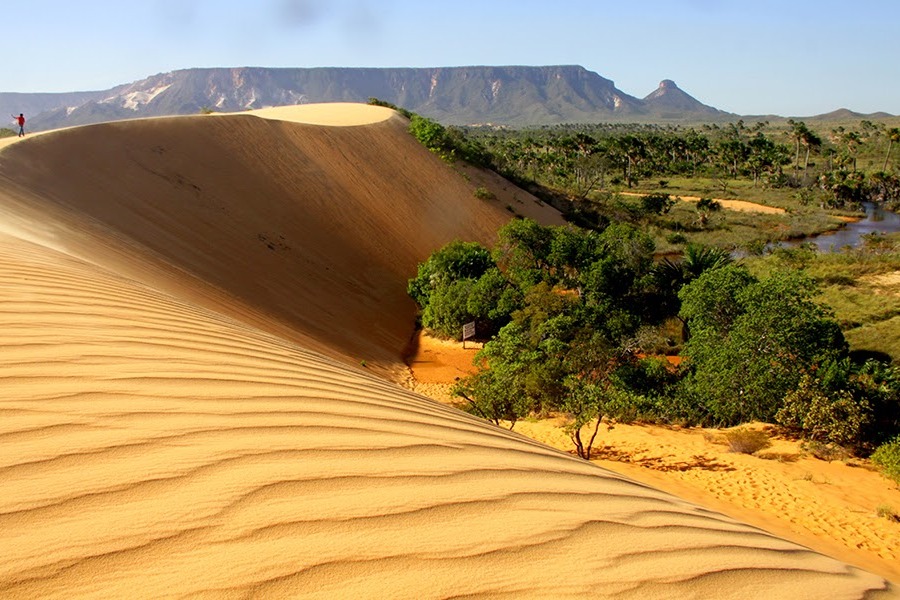
Jalapão
31-05-2020
The Jalapão was named after the Jalapa, a flower with therapeutic properties, and is a huge region in the Brazilian state of Tocantins, which is larger than certain states such as Sergipe or Alagoas. Jalapão has one of the lowest population densities in Brazil: 0.8 people per square kilometer. Its impressive desert landscapes are due to the retreat of a sea that has occupied the region for millions of years. Long stretches of untouched nature alternate with erosion sand dunes, cliffs and rocky mountains. The Jalapão also has a rich hydrography with areas of lush vegetation similar to the Atlantic forest, with palm trees, ferns and many trees, a habitat of a rich fauna, and countless rivers, streams, natural pools and waterfalls, such as the waterfall of the Formiga river. The crystal clear water shows the sandy limestone floor with surprising clarity (visitors should bring snorkels). The calcium carbonate released into the water ensures quick calcification and precipitation of the alluvium and always keeps the water clean. A surprising feature of Jalapão are the "kettles", small natural pools, the warm and crystalline water of which emerges from the depths of the earth. The ideal water temperature makes them wonderful pools where you can relax and hover effortlessly, even without being able to swim, because when the atmospheric pressure is reached, gas is released naturally from the water, which contributes to an unusual fluctuation of your body. Through the clear and blue water of the largest of them with a diameter of 15 meters, it is possible to see the bottom at a depth of 35 meters without being in danger of sinking because of the strange phenomenon of fluctuation! Jalapão, one of the least explored Brazilian tourist destinations, has untouched wilderness areas and offers visitors trips similar to African safaris with camping opportunities on the banks of the Rio Novo.
Picture: reproduction / Emerson Silva - Government of Tocantins
Picture: Cachoeira do Formiga / Lia Mara - Government of Tocantins